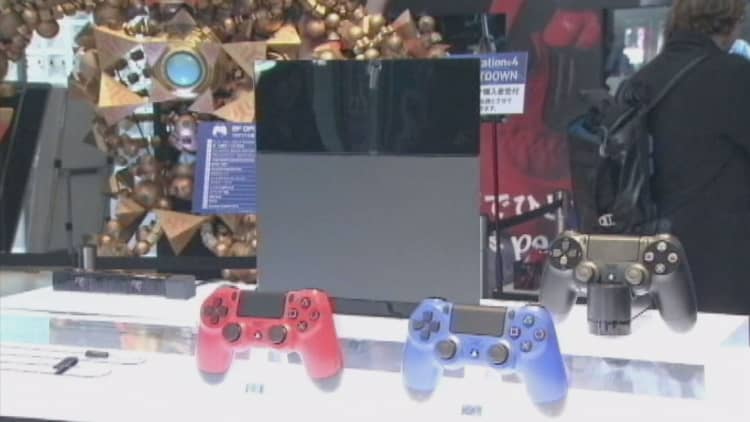E3, the video game industry's largest trade show, is struggling with an exodus of publishers.
Activision-Blizzard late Tuesday announced it would not have a booth on the E3 show floor. Instead, the company plans to showcase its new "Call of Duty" game at Sony's preshow news conference and hold private business meetings in suites at the Los Angeles Convention Center. The news comes roughly one month after Electronic Arts also announced it would not have a presence on the show floor.
"In June, we're going to be at E3 showcasing gameplay from Infinity Ward's ambitious new game," Activision said in a blog post. "We're looking forward to sharing exciting new details about the next great "Call of Duty" game in partnership with our friends at PlayStation. We're proud to be participating in this premier video game event, but won't have an Activision booth on the show floor."
The decision by Activision and EA to largely skip E3 raises questions about the viability of the event. The show has historically been the tentpole event of the video game industry, where big game and system announcements are unveiled.

In the past few years, though, more and more companies have instead been hosting their own events for such announcements. Sony and Microsoft unveiled the PlayStation 4 and Xbox One, respectively, well before the trade show. And Nintendo has not held an E3 news conference since 2012.
EA plans to follow that path this year, simultaneously hosting shows that are open to the general public both across the street from E3 and in London.
Both Activision and EA have made a point in their announcements to underscore their support for the Entertainment Software Association, which hosts E3. Both remain members of the lobbying and trade group.
Over the past few years, game publishers have increasingly shown an interest in taking their message directly to consumers, rather than relying on the media (especially enthusiast media) to relay the news. For several years, Sony and Microsoft have streamed their keynote pre-E3 events online. And Nintendo has announced its new games via a Nintendo Direct online broadcast for years.
Some publishers, including EA, have lobbied to allow gamers to attend E3 — and make it more of a public facing show, rather than one restricted to industry trade, retail buyers and media, but the ESA has been slow to embrace this. Last year, for the first time, the show opened its doors to people who weren't professionally affiliated with the industry, but only a relatively small number — 4,000 to 5,000. (Total attendance last year was roughly 50,000.)
It was a small step — and seemingly not enough for some publishers.
Activision's decision, though, could be less focused on the desire to speak directly to fans and more on diminishing returns of the show. (Activision did not return a request for comment.)
The company can rely on console partners to strongly showcase its big games — like "Call of Duty" and "Destiny." And family friendly franchises, like "Skylanders," don't generally garner the same level of attention from E3 showgoers.



